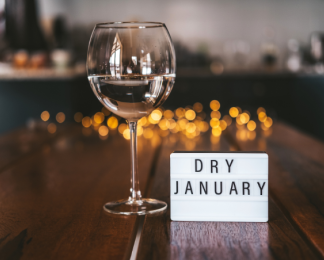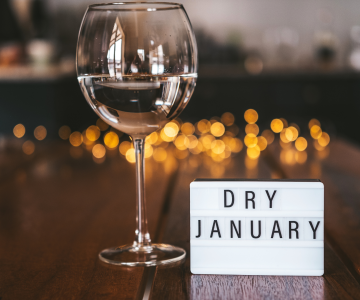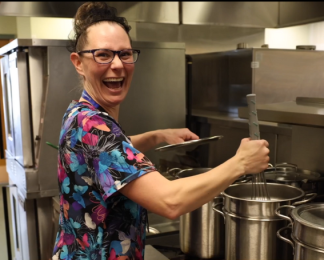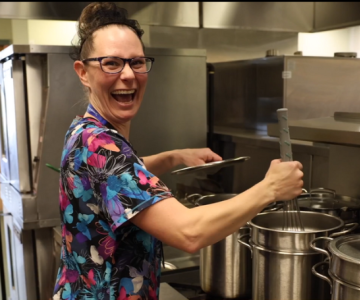Types of permits
Providing drinking water to consumers may require a valid permit or approval.
Get information about the permits or approvals required to provide drinking water to consumers. Learn about actions to take against watershed threats.

Providing drinking water to consumers may require a valid permit or approval.
New drinking water sources need to be assessed to identify and avoid potential contamination. Information collected is essential for supporting source protection efforts and proper treatment system design and operation.
Review the following information before starting your assessment application:
Complete the Request for New Drinking Water Source form. Contact an environmental health officer (EHO) with any questions.
An EHO will evaluate your new drinking water source(s) information and provide recommendations to you. Once you have received your recommendations, proceed with the Waterworks Construction Permit Application.
Construction permits are required by the Drinking Water Protection Act and must be obtained before the construction, installation, alteration or extension of a water supply system.
Review the following information prior to starting your application:
Complete the Application for Waterworks Construction Permit and email the form to Engineering Direct. If you have any questions, please contact Engineering Direct toll-free at 1-855-743-3550 or by email.
Additional requirements:
An operating permit is required for community drinking water supply.
Once a public health engineer has issued your construction permit, your file will be forwarded to an environmental health officer to begin the operating permit approval process. Complete the Application for a Permit to Operate a Water Supply System and contact an environmental health officer.
Any water systems that experience disruption to regular operations, such as loss of treatment, loss of pressure, loss of power, loss of source or loss of system integrity should implement their emergency response procedures immediately.
This includes issuing public notifications such as boil water notices, water quality advisories or do not use orders, as appropriate. Prior to resuming normal operations, water suppliers should undertake remedial actions such as flushing, disinfection and resampling as required.
More information is available to assist operators address, remediate and manage operations to ensure public health safety, during and after flood/landslide, power loss or wildfire events.
Drinking water operators should have emergency preparedness plans drafted as part of their regulatory requirements. For specific information on preparedness planning, please consult with your environmental health officer.
The watersheds of the Southern Interior are where we live, work, and play. They are also the source of the water we drink. Threats posed by activities in our watersheds need to be identified and managed.
Selection and protection of a high quality water source is the first and most important step in ensuring clean, safe, and reliable drinking water. Water suppliers need to understand where their water comes from, the factors effecting the amount and quality of the water entering their system, and how to manage threats to their source.
Learn about the steps water suppliers take to assess and protect drinking water supplies.
Resource extraction (e.g. mining, logging), farming, construction, recreation and waste disposal all pose a threat to watersheds. We all need to follow land-use regulations and best practices to avoid creating drinking water health hazards.
Learn about land-use regulations that protect watersheds and water quality.
Community system water samples are collected by the owner of the system or other suitably trained personnel and submitted for bacteriological testing. Chemical water sample results are not available at this time.
For upcoming peer-to-peer courses offered by Interior Health Authority, please refer to the British Columbia Small Water Systems Online Help Centre.


Those with dementia need special consideration during the holidays. Read our tips and advice to make the holidays enjoyable for everyone.
/stories/supporting-loved-one-dementia-during-holidays


Loreen’s ability to keep calm under pressure, paired with her caring nature, have been integral to her success and to the quality of care that she provides.
/stories/we-are-ih-experienced-nurse-always-steps-when-needed


Many people like to do the Dry January challenge, but going dry isn't for everyone. Gain tips on reducing your alcohol consumption in the New Year and beyond..
/stories/thinking-going-dry-january-going-damp-great-option-too


As we come to the close of 2024 we pause to reflect on the year and celebrate our achievements. Watch our short video of this year’s highlights across IH.
/stories/looking-back-and-celebrating-2024


All's well that ends well: For Kelowna health unit aide JQ, this simple phrase is more than advice—it’s a way of life.
/stories/we-are-ih-health-unit-aide-brings-positivity-every-day


The winter and holiday season can bring joy, but can also bring stresses and challenges. Explore these 10 tips for supporting for mental and physical health.
/stories/10-healthy-habits-winter-and-holiday-season
Receive news and alert posts, and Stories@IH blog posts, right to your inbox!
